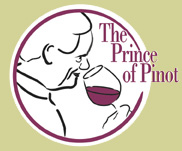Metabolism & Digestive System
Alcohol Consumption and Risk of Pre-Diabetes and Type 2 Diabetes Development in a Swedish
Population Diabet Med 29 (1) April 2012 The findings support a “u-shaped curve” for alcohol and diabetes
risk both for men and women with a lower risk of developing diabetes for moderate drinkers than abstainers
and possibly an increased risk for heavier drinkers. The highest risk was found for pre-diabetes and diabetes
in non drinkers. The International Scientific Forum on Alcohol Research had some concerns about this study.
Alcohol Consumption is Associated with Reduced Risk of Type 2 Diabetes and Autoimmune Diabetes
in Adults: Results from the Nord-Trondelag Health Study Diabet Med 30 (1) January 2013 Moderate
alcohol consumption adjusted for confounders was associated with a reduced risk of Type 2 diabetes in men,
but not in women. The reduced risk was primarily linked to the consumption of wine. No increased risk was
seen in bingers or problem drinkers. The results also showed a reduced risk of autoimmune diabetes
associated with alcohol consumption.
Alcohol Consumption and Risk of Type 2 Diabetes in European Men and Women: Influence of Beverage
Type and Body Size: The EPIC-InterAct Study J of Int Med 272 (4) October 2012. Researchers at
numerous medical centers in Europe examined the lifestyle habits of nearly 30,000 people. They found that
moderate alcohol consumption is associated with a 13 percent lower risk of Type 2 diabetes in men and a 20
percent lower risk in women. Moderate alcohol consumption also helped reduce diabetes risk in overweight
people more than those of average weight. The authors of the study theorize that overweight people
metabolize ethanol at a higher rate. The effect was seen up to 50 grams of alcohol per day beyond which all
categories saw an increase in risk. Better results were seen for wine drinkers probably due to other
confounders such as diet, exercise and smoking.
Gastroenterologist Dr. Kevin Ghassemi at UCLA reported to DrugFree.org (August 15, 2012) that alcohol is a
major culprit in heartburn. Alcohol relaxes the lower esophageal sphincter creating an opening and stomach
acid can back up into the esophagus leading to the heartburn sensation.
Red Wine Prevents Cholesterol Buildup From Meat J of Functional Foods January 2013 (prerelease
online) A research team from Hebrew University of Jerusalem found that antioxidants in wine prevented
harmful compounds from meat from being absorbed. Volunteers who ate dark turkey cutlets alone had
increased levels of malondialdehyde in their blood and greater levels of cholesterol that had been modified by
malondialdehyde. The levels of modified cholesterol increased by 97% after four days of eating meat. When
test subjects had turkey cutlets marinated with red wine, their levels of modified cholesterol either remained the
same or fell. This study is support for the time honored tradition of steak with red wine.


